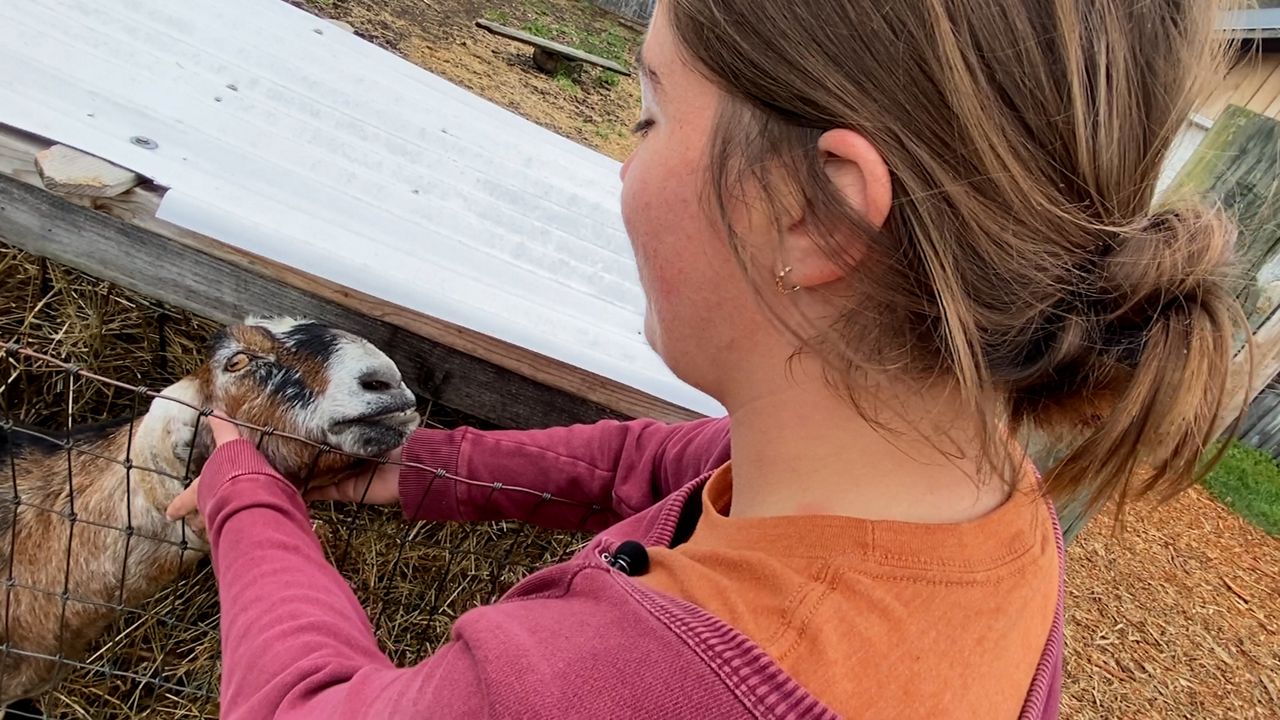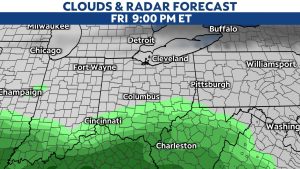EVENDALE, Ohio — Every morning, Amanda Hanger heads to work and do what she loves, spending the day outside, working in the soil and teaching others everything she knows about how to protect it.
A sustainable agriculture student at Cincinnati State, Hanger said she always wanted to be a farmer. Now, her work assisting farm after farm, adopting the lessons she’s learned in class, earned her Cincinnati’s annual student Earth Day Award.

Hanger pets a goat. She said she’s known it since it was a baby.
Saturday, Hanger will be honored at the 2022 Earth Day Festival, returning to Summit Park for the first time since the pandemic. As the annual celebration puts the spotlight on volunteers, businesses and activists, Hanger’s work with regenerative agriculture earned her a spot among them.
“I was surprised when I even got nominated,” Hanger said.
Currently working at Gorman Heritage Farm as a Crop and Land Steward, this is the latest in a series of farms that brought her in to help with implementing more sustainable practices.
Hanger said Gorman was looking to transition away from traditional agricultural practices, eliminating all GMOs and pesticides. They hired her in the spring for her expertise in natural soil restoration.
“It’s where all life comes from,” Hanger said. “If we didn’t have healthy soils, we wouldn’t be able to grow food and we wouldn’t be able to sustain life.”
So far she’s been helping them manage cover crops and proper animal grazing to ensure the fields, while teaching them how to adhere to the basic tenants of regenerative farming like crop rotation and no tilling.
“You give back more to the fields than you take from them,” Hanger said.

Hanger explains why clover is planted in the crop field
That’s why many of the fields at Gorman appear to be covered in weeds. Hanger said planting clover or other small, native crops helps the soil naturally build back its carbon and nitrogen stores.
When it’s time to plant the corn, soybeans and alfalfa that fill those fields, Hanger said one of the fields will be one left undisturbed as the clover grows.
“That permanent clover field will rotate each season so each field has a chance to rest,” she said.
The animals at the farm can play another role. While they typically serve as educational animals, Hanger said the sheep, goats and cattle at Gorman can also graze on the crop fields and provide natural fertilizer.
“Instead of using harmful pesticides and herbicides in our fields, we can use our animals to eat the weeds for us and keep that under control,” she said.
For Hanger, coming back to Gorman is like a homecoming. She said she came to the farm as a kid through their summer camp program and returned every year, eventually becoming a camp counselor.

Hanger drives a tractor at Gorman Heritage Farm
“Gorman is where I found my love for farming,” she said.
Now, she said working for the farm again, while getting public accolades for the work feels overwhelming.
“I feel like I’ve always looked at farmers and thought that that was such a cool job,” she said. “Getting to be the person that does that is really exciting to me.”
Hanger said her passions lie in sustainable food production, so she hopes to continue serving farms like Gorman.




